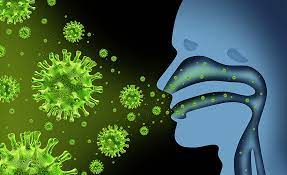AI Can Help Detect Infectious Diseases Before They Become Fatal
06 June 2022 | News | By Devin Partida- A medical and health tech writer from San Francisco, California. She also writes about medical technologies, AI and cybersecurity on ReHack.com.
Infectious diseases are a persistent and dangerous threat, even as health care technology and treatments have advanced. One of the most significant challenges with these conditions is that some can be difficult to detect before they worsen. Artificial intelligence (AI) can help

Image Source : Public Domain
AI has already seen considerable adoption in the medical sector. It plays a central role in drug discovery, automation of administrative tasks and patient outreach, and its use cases keep growing. Some AI algorithms can help doctors diagnose infectious diseases before threatening patients’ lives.
How AI Can Detect Diseases Early
AI algorithms produce results by recognizing patterns in data, then looking for those correlations in new information. Many businesses use these models to predict demand shifts or supply chain disruptors by recognizing early warning signs observed in past events. In the same way, AI can find early symptoms in patients with infectious diseases.
AI’s speed and attention to detail let it recognize these patterns where humans may not be able to. Researchers at MIT found that AI can detect asymptomatic COVID-19 cases by noting differences in the way people cough. These audible discrepancies are indistinguishable to human ears but not to machines.
These models can become more reliable as they analyze more cases. They’ll gather additional data and see new patterns to refine what they search for, helping reduce false positives.
Advantages of Diagnostic AI
Using AI to diagnose infectious diseases has many advantages. Most notably, AI can detect conditions before doctors can by recognizing signs and symptoms before they’re noticeable to human senses. Early applications reveal that these models can also outperform health care professionals when interpreting medical data.
AI can review mammograms 30% faster than doctors and with 99% accuracy. This speed and reliability reduce unnecessary biopsies and reveal the best course of action sooner. Doctors that uncover conditions earlier can begin treatment earlier, improving patient outcomes.
Duke Heath’s diagnostic AI Sepsis Watch highlights this technology’s potential to save patients. While not an infectious disease, sepsis has a 28% mortality rate, largely because it’s difficult to detect early. The Sepsis Watch AI can find early warning signs 72 hours in advance, informing faster treatments and stopping the condition from turning fatal.
AI can also predict disease outbreaks, helping hospitals react to prevent infections from spreading among their patients and staff. Studies show that using these algorithms with real-time data in just one hospital could have prevented 63 transmissions and saved the hospital $692,000.
Considerations for Using AI in Health Care
As promising as diagnostic AI is, health care professionals must approach it carefully. Like any novel treatment, doctors must receive informed consent from patients to stay compliant with regulations. That means explaining the potential benefits, risks and alternatives of AI-led care before relying on these technologies.
It’s also important that human doctors have the final say. AI has shown remarkable accuracy, but mistakes can still occur. An error in one AI model could endanger thousands of patients, whereas human error has a comparatively smaller impact.
Medical AI also presents a security risk. Attackers could infiltrate these models’ data sets and inject false or misleading information to hinder their accuracy, leading to diagnostic errors. AI requires vast data sets, so it may also make hospitals more enticing targets for cyberattacks.
Health care organizations must understand these risks to inform safe AI usage. Medical staff should know where this technology falls short so they can apply it appropriately, optimizing patient outcomes.
Medical AI Has Considerable Potential
AI in medicine could thoroughly disrupt the industry. It could make infectious diseases less common and less fatal as the technology improves and more hospitals implement it.
Medical AI is still relatively new. Despite this novelty, it has already produced impressive results and will only improve over time. Careful implementation of this technology could reduce strain on hospital staff and save patients’ lives by detecting infectious diseases early.
Devin Partida- A medical and health tech writer from San Francisco, California. She also writes about medical technologies, AI and cybersecurity on ReHack.com.












